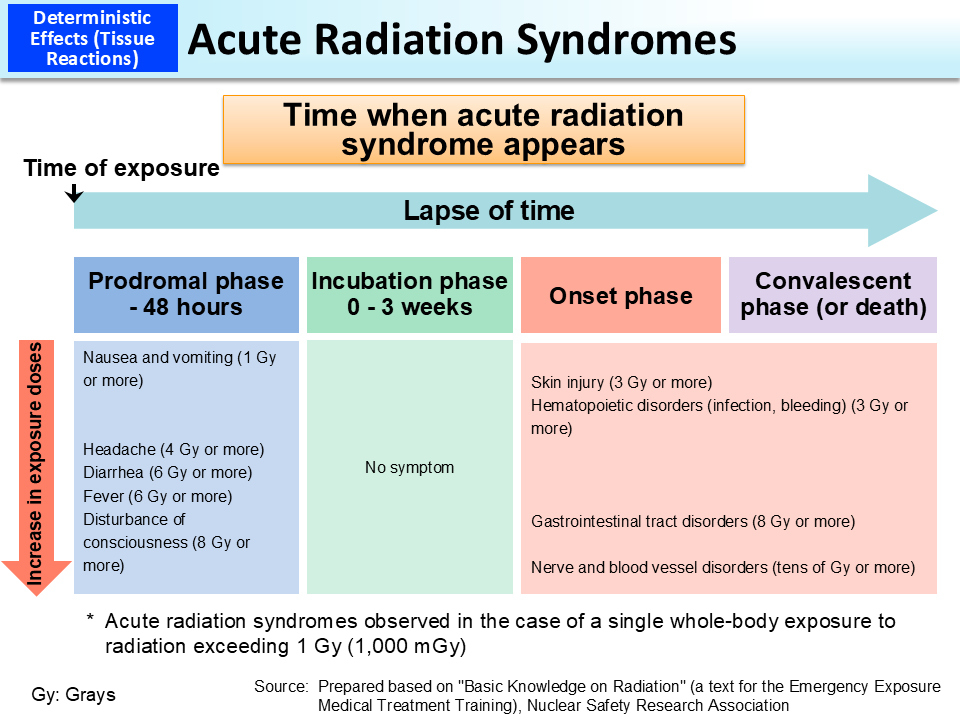Acute Radiation Syndromes
A single whole-body exposure to radiation exceeding 1 Gy (1,000 mGy) causes disorders in various organs and tissues, leading to complicated clinical developments. This series of disorders in organs is called acute radiation syndrome, which typically follows a course from the prodromal phase to the incubation phase, the onset phase, and finally to the convalescent phase or to death in the worst case.
From prodromal symptoms that appear within 48 hours after the exposure, exposure doses can roughly be estimated (p.96 of Vol. 1, “Prodromal Phase of Acute Radiation Syndrome and Exposure Doses”).
In the onset phase after the incubation phase, disorders appear in the order of hematopoietic organ, gastrointestinal tract, skin, and nerves and blood vessels, as doses increase. Disorders mainly appear in organs and tissues highly sensitive to radiation. In general, the larger the exposure dose, the shorter the incubation phase.
Skin covers a large area of 1.3 to 1.8 m2 of the whole body of adults. Epidermis, which is the result of gradual differentiation of basal cells that are created at the basal stratum, finally becomes a stratum corneum and is separated from the body surface as scurf.
It is said to take approx. 20 to 40 days until basal cells move from the basal stratum to the skin surface, which means1 that two to more than four weeks is required for exposed subcutaneous cells existing in the stratum corneum to the basal stratum to come up to the skin surface. Therefore, skin erythema may appear immediately after exposure depending on radiation intensity, but skin injury generally appears after the lapse of a few weeks or more (p.25 of Vol. 1, “External Exposure and Skin”).
- Source: United Nations Scientific Committee on the Effects of Atomic Radiation (UNSCEAR) 1988 “Radiation Sources, Effects and Risks,” translated by the National Institute for Radiological Sciences (Jitsugyo-koho Co., Ltd.; March 1990)
- Included in this reference material on March 31, 2013
- Updated on March 31, 2021

